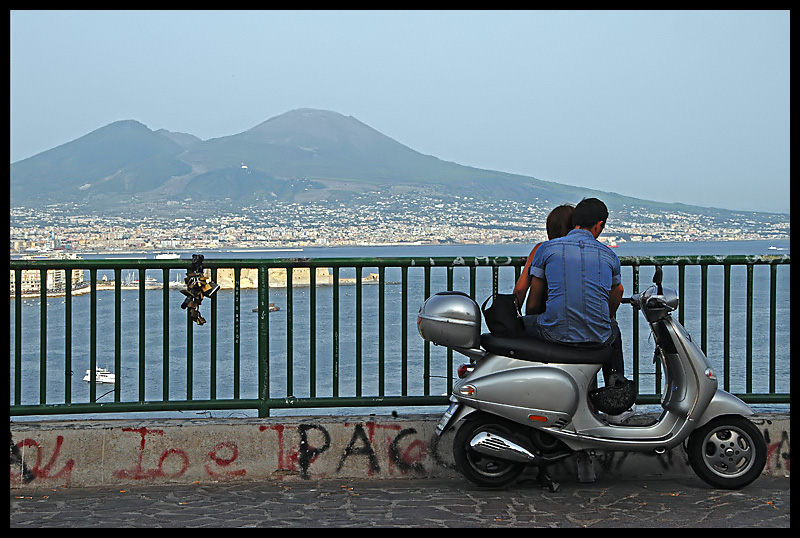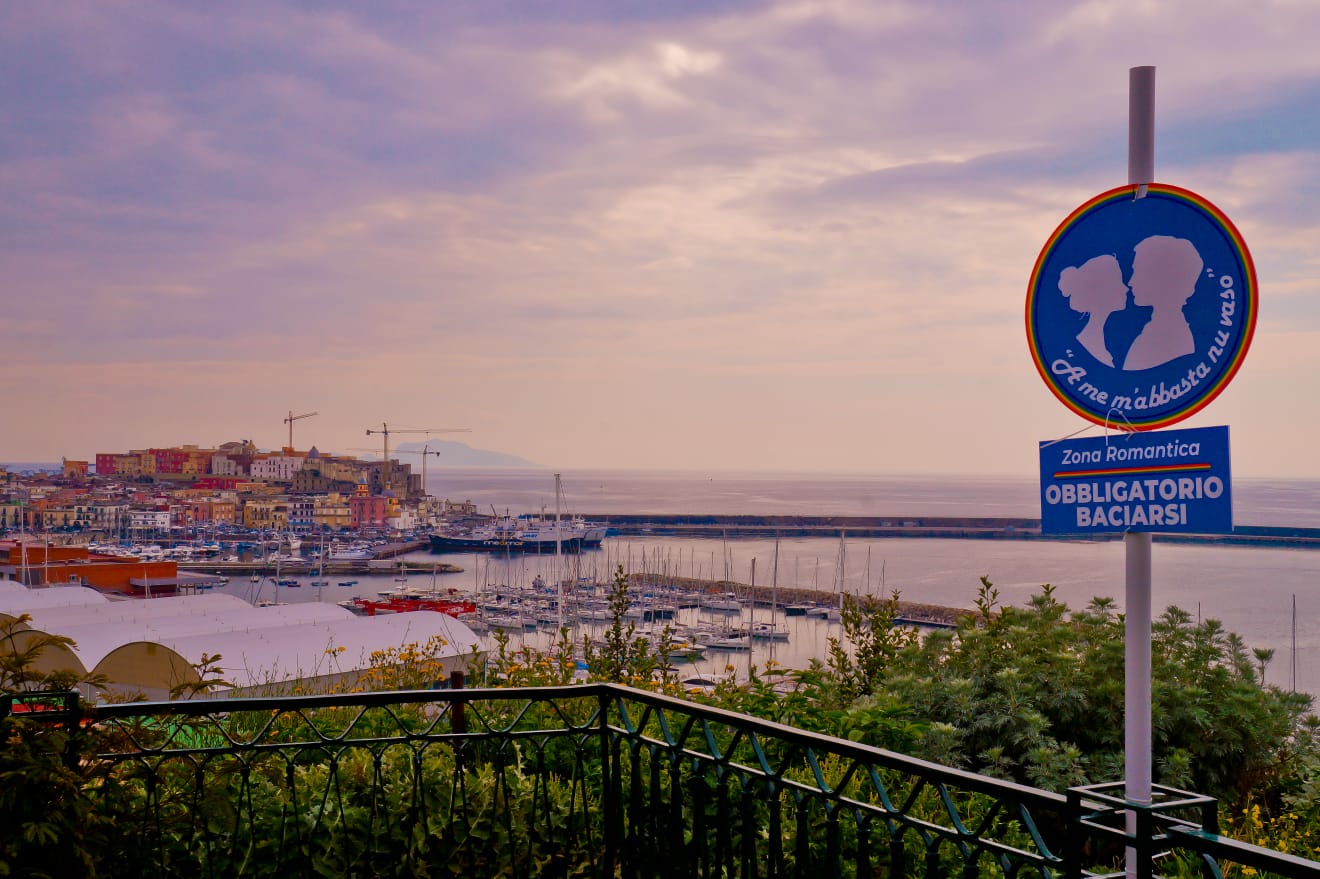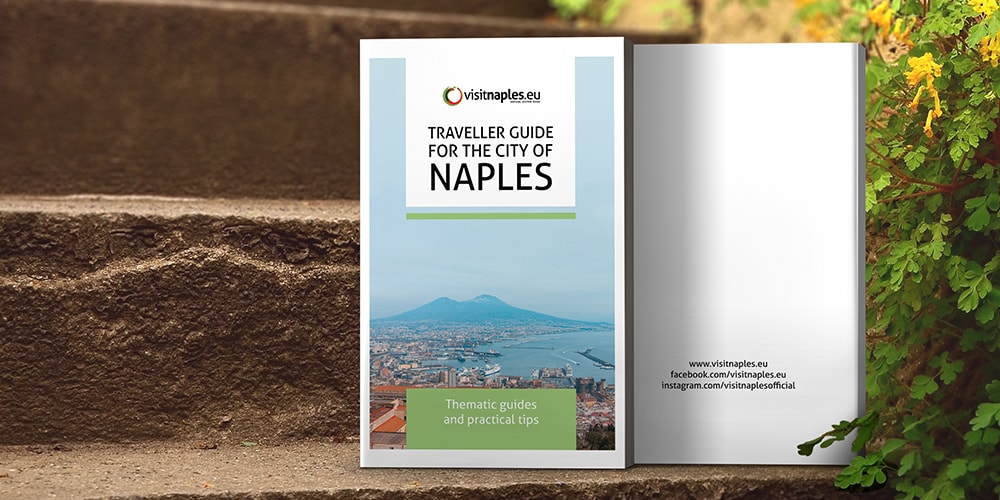Neapolitan is perhaps one of the main traits of Naples, a true brand that lends additional luster to the city. It is a unique language, having history and tradition that are also reflected in the present. From songs to literary texts, there are many traces of Neapolitan that we still find today. Just the songs can be the right example to explain a clear trait of diversity between neapolitan and italian.
Let's talk about the relationship with love, the love language that is lived and breathed in the Neapolitan city. In Naples, we do not say 'I love you', maybe the most important expression uttered in the course of every person's life. Let's find out what expressions are used instead, with the help of five songs that are very different from each other but have in common that love is expressed in Neapolitan. A 'Neapolitan-style' love, we can define it.
Translated with www.DeepL.com/Translator (free version)
5. "Me song 'nnammurat e te": Andrea Sannino - "Abbracciame"
Let us start with a premise: Neapolitan gives prominence like few others to the action of falling in love. In fact, it is used dure 'me song 'nnammurat e te', thus a reflexive form. Love 'reflects' on ourselves, it embraces only us, we pay the consequences, whether positive or negative. The feeling of others becomes almost secondary, because in the meantime it is we who are tormented by passion and love. It is an open-hearted confession, a desperate cry for love, a frantic plea for help. Like, 'me song 'nnammurat e te' and this can be your doom or your salvation, the choice is yours. It is a wonderful serenade 'Abbracciame' by Andrea Sannino, which fully sums up the thought just expressed.

The song was released in 2015, soon becoming the subject of deep and loving dedications from many lovers. However, it was with the release of COVID-19 that the song became widespread and global. In fact, it was the 'soundtrack' of the lockdown, the most played song from balconies all over Italy. It was a cry of hope in the darkness and ashes of spring 2020. A virtual embrace that nevertheless warmed so many suffering and frightened hearts. The lyrics are a profound and genuine statement of unique spontaneity, giving further value to falling in love and its irrepressible explosiveness. 'Abbracciame' has saved so many people, teaching and spreading love where it seemed to have almost disappeared.
4. "Oje vita mia": Anna Magnani - " 'O surdat 'nnammurato"
'O' surdato 'nnammurato' is probably the most Neapolitan song ever. Its story has an eternal charm and tradition, none will be like it. It will probably still be popular in the city a hundred years from now. The poet Aniello Califano wrote the lyrics back in 1915 with the intention of depicting the feeling of despair felt by soldiers as they bid farewell to their beloved women. From here, one cannot even count the number of singing reinterpretations that have followed in time. Of all of them, perhaps the most famous remains that of Anna Magnani, straight from the film La sciantosa in 1971. The most famous male interpreter is instead Massimo Ranieri, who proposed it to the public the following year.
These are unique verses, full of melancholy and suffering due to the distance from a loved one. We dwell here on 'Oje vita, oje vita mia', a typical Neapolitan expression. Indeed, it is pure Neapolitanism to use 'Si a' vita mia' towards one's loved one, even more so to call the latter directly 'vita mia'. It almost brings a smile to one's face the very moment one utters it, evoking a form of serene and joyful affection on all sides. Even in this song, even in this sorrowful lyric, there is the promise of love of the soldier who swears eternal love to his beloved, to 'his life'. Here too there is hope and there is light through love.
3. 3. "M' manc": Geolier - "M' manc"
We totally change genre, era and dimension to the banal but eternal 'mi manchi', which in Neapolitan becomes 'm' manc'. For the occasion, we turn to modern-day Neapolitan rap and its greatest exponent, namely Geolier, anagrafe Emanuele Palumbo. He is a rapper born in 2000 who, between one banger and another, also manages to record songs full of romanticism. This is the case of 'M' manc', a song released in 2020 with the collaboration of Sfera Ebbasta and Shablo. A song that was a real novelty due to its innovative structure, namely the refrain that was translated from Neapolitan into Italian.

Oddly enough, there is no particularism, no poetic device or interesting novelty. Neapolitan here equates with Italian in the use and form of 'mi manchi', one of the expressions that most confess love. Missing oneself is a form of love, and we can also take the song to emphasise this. Here, the lack is so strong that it leads to suffocation, to death. One connects with breathing, missing air if the loved one is not with us.
2. 2. "Picceré me faje asci pazz": Liberato - "Me faje asci pazz"
Staying in the present day, we could not fail to mention Liberato, now a legendary figure in the current Neapolitan music scene. We speak of 'legend' because after almost six years, it was 9 May 2017 when it all began, we still do not know in actual fact who is behind his songs. In any case, although we do not know who he is, we can safely point out how fully he expresses love and its nuances in the Neapolitan language. In short, his songs are a dictionary of Neapolitan accompanied by music that is always captivating and interesting. Continuous innovation that keeps the city's name high every May.

Among Liberato's many songs, we chose 'Tu me faje ascì pazz', a track contained in the first album released in 2019, also on 9 May. It is the Neapolitan evolution of 'you make me crazy', but obviously in Neapolitan it has a whole other flavour. It goes straight to the point, more direct in short. Let us also mention 'm'arrevuot o' core', perhaps Liberato's cult phrase, contained in 'Me staje 'appennenn amò', the singer's iconic song. Much more difficult to interpret the meaning of the expression for those who masticate little Neapolitan. The phrase literally means 'you turn my heart upside down', but does it make sense that way? We firmly believe that it does not render the original meaning at all, the 'arrevuot' is unique, it also gives a certain 'satisfaction' in pronouncing it. Liberato is freedom, and in his songs there is a freedom of love to be taught and spread.
1. "Te voglio 'bbene assaje": Lucio Dalla - "Caruso"
Let us close in a roundabout way, returning to the original question: Neapolitan does not say 'I love you'. The Neapolitan language does not include it in its usage, either in everyday or textual form. The Neapolitan uses, seemingly banally, 'te voglio 'bbene' for everything. Whether for a friend, a loved one, even a pet, this expression is enough. Of course, the form is the same but the intention, the content changes drastically. With 'te voglio 'b bene', love is affirmed in its purest form, with its greatest quality: generosity. We want the good of the other, that is our desire, regardless of our good. Only the 'you' counts, the 'I' is put totally in the background. This is because in love there is no such thing as selfishness, although in any case with the good of the 'you' we then arrive at the good of the 'I'.
Lucio Dalla
Perhaps the greatest representative of 'Te voglio 'bbene' in music is Lucio Dalla, author in 1986 of the masterpiece 'Caruso'. The basis that forms the entire text is the story of Enrico Caruso, who in 1921 stayed in Sorrento after an operation on a lung. There he fell deeply in love with a woman, singing to her on the piano from the terrace, his health having deserted him by then. Dalla, having learned the story during a stay in Sorrento, decided to pursue it. He imagined Caruso's cry of passion as he shouted 'Te voglio 'bbene assai, ma tanto, tanto bene assai'. A stainless good, strong 'like a chain'. Nothing could ever undermine a love so pure and unique.










Lascia un commento